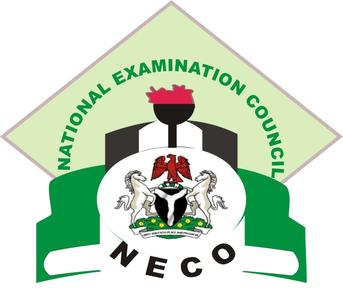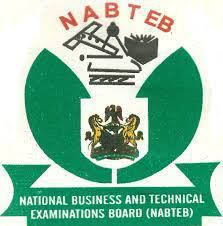Waec 2024/2025 English Language/Test of Oral Syllabus And Hot Topics For English Language/Test of Oral Questions and Answers
It is no longer news that Waec 2024/2025 registration and examination is around May/June examination is close. So many waec candidates have been asking questions about 2024 waec syllabus and topics to read so as to pass waec 2024 without much stress. The truth of the matter is that, the relevance of Jamb syllabus and expo on the topics to focus on cannot be overemphasized. There are four weapons you need you need to pass the WAEC 2024/2025 examination. They are: WAEC Syllabus WAEC past questions and answers Hot topics to read to pass waec 2024/2024 The recommended waec textbooks and Your complete preparation. In this article, I will bread down the waec English syllabus for you. PAPER 1: This paper will be divided into three sections (A, B and C). SECTION A: ESSAY WRITING (50 marks) Candidates will be required to spend 50 minutes on this section. There will be five questions in all and candidates will be required to answer only one question. The questions will test candidates‟ ability to communicate in writing. The topics will demand the following kinds of writing: (i) letter; (ii) speech; (iii) narrative; (iv) description; (v) debate/argumentative; (vi) report; (vii) article; (viii) exposition; (ix) creative writing. Credit will be given for (i) Content: relevance of ideas to the topic and its specified audience and purpose; (ii) Organization: formal features (where applicable), good paragraphing, appropriate emphasis and arrangement of ideas; (iii) Expression: control of vocabulary and sentence structure; (iv) Mechanical Accuracy: grammar, punctuation and spelling. The minimum length expected will be 450 words. SECTION B: COMPREHENSION (40 marks) Candidates will be required to spend 50 minutes on this section. The section will consist of two passages each of about three hundred (300) words. Candidates will be required to answer questions on the two passages. The questions will test the candidate‟s ability to (i) find appropriate equivalents for selected words and phrases; (ii) understand the factual content; (iii) make inferences from the content of the passages; (iv) respond to uses of English expressions to reveal/reflect sentiments/emotions/attitudes; WEST AFRICAN SENIOR SCHOOL CERTIFICATE EXAMINATION ENGLISH LANGUAGE (v) identify and label basic grammatical structures, words, phrases or clauses and explain their functions as they appear in the context; (vi) identify and explain basic literary terms and expressions; (vii) recast phrases or sentences into grammatical alternatives. The passages will be chosen from a wide variety of sources all of which will be suitable for this level of examination in terms of theme and interest. The passages will be written in modern English that will be within the experience of candidates. The comprehension test will include a total of three questions based on (vi) above in any one paper. SECTION C: SUMMARY (30 marks) Candidates will be required to spend 50 minutes on this section. The section will consist of one prose passage of about five hundred (500) words and will test the candidate‟s ability to (i) extract relevant information; (ii) summarize the points demanded in clear, concise English; (iii) present a summary of specific aspects or portions of the passage; (iv) avoid repetition, redundancy and extraneous material. The passage will be selected from a wide variety of suitable sources, including excerpts from narratives, dialogues and expositions of social, cultural, economic and political issues in any part of the world. PAPER 2: This is an objective/multiple choice paper comprising 100 questions: 40 lexical and 60 structural items. Each question/item will have four options lettered A to D. A. LEXIS In addition to items testing knowledge of the vocabulary of everyday usage (i.e. home, social relationships, common core school subjects) questions will be set to test the candidate‟s ability in the use of the more general vocabulary associated with the following fields of human activity: I. (a) Building; (b) Plumbing; (c) Fishing; (d) Finance – commerce, banking, stock exchange, insurance; (e) Photography; (f) Mineral exploitation; (g) Common manufacturing industries; (h) Printing, publishing, the press and libraries; (i) Sea, road, rail and air transport; (j) Government and politics; (k) Sports and entertainment; WEST AFRICAN SENIOR SCHOOL CERTIFICATE EXAMINATION ENGLISH LANGUAGE 194 (l) Religion; (m) Science and Technology; (n) Power production – hydro, thermal, solar; (o) Education; (p) Transport and Communication; (q) Military; (r) Journalism and Advertising. II. Idioms, i.e. idiomatic expressions and collocations (e.g. “hook, line and sinker”, “every Tom, Dick and Harry” etc.) the total meaning of which cannot be arrived at simply by consideration of the dictionary meanings of the words in the structures in which they appear. III. Structural elements of English e.g. sequence of tenses, matching of pronouns with noun referents, use of correct prepositions. IV. Figurative usage By “more general” vocabulary is meant those words and usages of words normally associated with the field of human activity in question which are generally known, used and understood by most educated people who while not engaged in that field of activity may have occasion to read, speak or write about it. Thus, for example, in the vocabulary of transportation by sea, one would expect knowledge of terms such as “bridge” and “deck”, which most educated people understand, but not “halyard”, “dodge”, “davit” or “thrust block”, which are specialized. All items will be phrased in such a way as to test the use and understanding of the required lexis, rather than dictionary definitions and explanations. In practice, the test of lexis will be so designed as to explore, not merely the extent of the candidates‟ vocabulary but more importantly their ability to respond to sense relations in the use of lexical items e.g. synonyms, antonyms and homonyms. In the testing of figurative language, candidates will be expected to recognize when an expression is used figuratively rather than literally.Categories: WAEC Syllabus Past Questions and Answers
0 Responses




